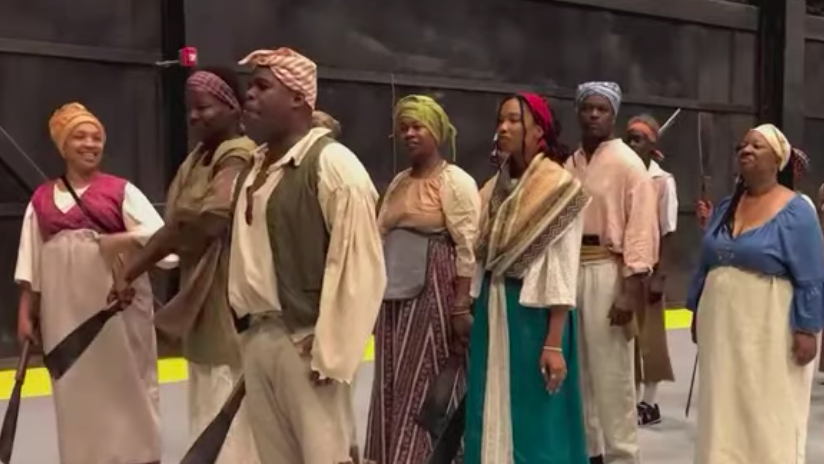To commemorate the largest slave rebellion in American history, hundreds of actors will convene in southeastern Louisiana this week to recreate the iconic revolt from more than 200 years ago.
Marching for 26 miles along the Mississippi River November 8-9, the actors will be dressed in antebellum garb, holding machetes and rifles. They will end their demonstration in New Orleans’ Congo Square — a sacred area where enslaved people gathered on Sundays.
The reenactment will honor the massive rebellion that took place on January 8, 1811, which spanned across numerous plantations and involved upwards of 500 enslaved people, AP News reported. According to Ibrahima Seck, a historical advisor for the reenactment and the research director at the Whitney Plantation, the slave revolt was motivated by the impact of the Haitian Revolution.
“I think it will be an amazing experience,” artist Dread Scott told the Associated Press.
Scott, who created the project, said the reenactment will be a thought-provoking experience.
“Seeing hundreds of Black folk with machetes and muskets and sickles and sabers, flags flying, chanting to traditional African drumming, is going to be an amazing moment. And people would be like, ‘What am I looking at? This doesn’t make sense.’ It will be an area where people can learn a lot and think a lot,” Scott said.
In preparation for the demonstration, organizers have reportedly taken measures to ensure a safe and successful reenactment. According to AP News, law enforcement and security have been delegated for the two-day event and reenactors have been instructed to ignore hecklers or agitators along the route.
New Orleans residents have also pitched in to help with the effort, including volunteering to sew and create the period-specific costumes for the reenactment.
“With this project, it’s highlighting the tenacity and the resilience that the people who were enslaved had to want to break free, to want to create their own republic,” Julie Joseph, a reenactor and one of the demonstration’s costume designers, told AP News. “I think that’s something that’s been really encouraging to me and something that’ll be really encouraging to a lot of other Black people to know that I come from fighters."
